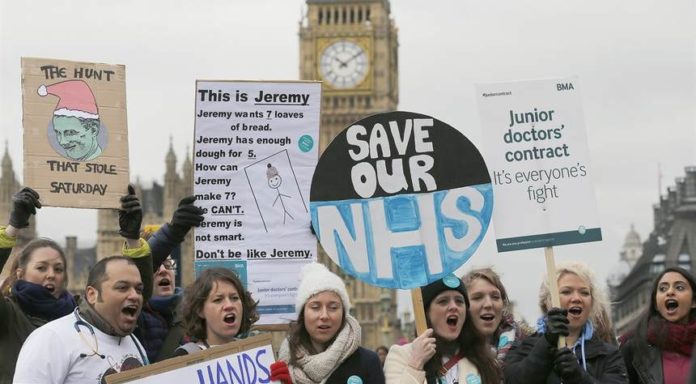Great Britain is experiencing inflation at 11%. Last year, the government has frozen the wages of nurses and ambulance workers, railway workers, and other service unions. This led to a wave of resignations. Given their central role in healthcare, the shortage of nurses is especially important. According to some estimates, there are currently 40,000 vacancies in the National Health Service (NHS). Those who are still available are severely overworked.
Great Britain has seen the worst labor unrest for more than a decade, and the government is resisting the massive pay increases that workers want.
Yesterday saw an unexpected strike by ambulance workers, resulting in the government issuing some bizarre directives. To avoid an emergency room visit, citizens were instructed to drink responsibly and to refrain from engaging in “risky activities” at Christmas celebrations. They should also avoid unnecessary car trips and contact sports. Although 1,200 soldiers were sent by the government to operate the ambulances they are not trained in critical care.
Last week, nurses staged a one-day walkout — the largest work action in the history of the NHS.
NPR:
They’re not the only ones leaving. They are joined by employees from other essential services, such as rail workers, postal carriers, and airport immigration officers. This is the largest number of labor actions in the United Kingdom for more than a decade and poses a significant challenge to Prime Minister Rishi Panak’s government.
There are many factors that drive the strikes. However, the most important cause of the strikes is inflation. This is due to Russia’s invasion and subsequent supply chain problems. Parts of the public sector are vulnerable for a while. For years, the National Health Service, which offers free healthcare, has been suffering from underfunding and workers being laid off.
According to the government, nurses want a 19% raise. “The government must engage in pay negotiations because these strikes will escalate if they don’t. This is the truth,” stated Onay Kasab, Unite the Union.
ABC News:
As people in the U.K. are facing delayed hospital appointments, canceled trains, and travel delays due to the winter holiday season, the government believes that public opinion will turn against the unions. However, opinion polls indicate that there is a lot of support for workers, especially nurses.
The pressure on Britain’s health system from rising demand and staff shortages due to Brexit and burnout is putting strain on the system.
Sunak, who has been prime minister for only a short time, would not be the first to have this problem. He has managed to win both friends and foes in his short tenure. Recent polls show that Sunak would lose his seat in Parliament if it were to be held now.
He still has plenty of time to fix the ship. He may have to abandon his premiership if work stops.










